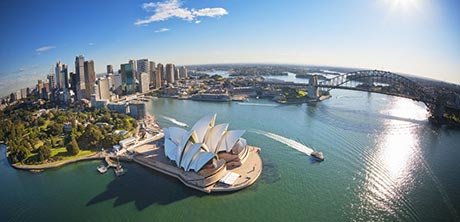Microsoft CEO Satya Nadella has confirmed the company will open the doors to its two Australian Azure facilities next week. Speaking at the Cloud Day event earlier in the week Nadella said the cloud data centers - located in Sydney and Melbourne – will officially be announced at an event at Sydney’s Horden Pavilion on October 28.
Some reports suggest the facilities will be operated by data center firm NextDC, which announced a US$60m partnership with a “large corporate” customer last year. It's expected the local Azure centers will not only be used for its cloud services but also for its Xbox division, which will bring a faster connection for online gaming for Australian Xbox One users.
Over the last few months two local service providers have been testing the cloud services, the platform also met compliance requirements for government agencies to use the services for non-sensitive data had been met.
Microsoft has made a serious investment in its data center portfolio in recent years, with a key focus on using software for data center automation to help deliver more than 200 online services through the Cloud, and its own hybrid cloud offering which is Azure.
Azure makeover
Microsoft also revealed at the event that Azure was getting a makeover. This will include new virtual machine classes in its public cloud, and a partnership with Dell to sell hardware pre-configured for on-premises Azure clouds.
The new G family virtual machines are a challenge to Amazon Web Services (AWS) with Microsoft's VP for cloud, Scott Guthrie, promising that with up to 450GB of RAM, they can have twice as much memory as Amazon's largest virtual machine. The Dell deal is only the first for on-premises Azure, Guthrie promised, as others are welcome to license the Azure Cloud Platform System.
Microsoft and data sovereignty
Some Australian businesses said they have avoided using offshore data centers following growing concerns around data sovereignty and the surveillance from government agencies. Earlier in the year a Microsoft spokesperson said the company understood replicating data within Australia would ensure that data sovereignty goals were met where applicable.

